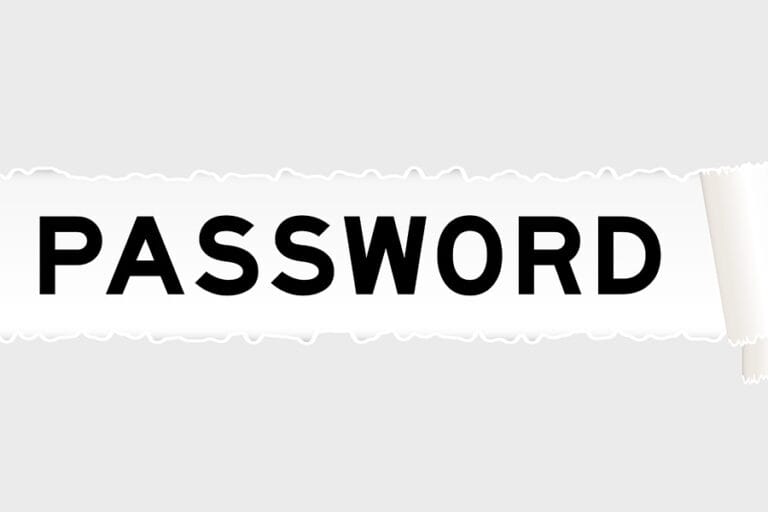
Common Passwords and Their Pitfalls
- 123456789
- Issue: Sequential numbers are the first guess for many hackers.
- Alternative: Mix letters, numbers, and symbols in a random sequence.
- donald
- Issue: Using common names (especially famous ones) makes your password easily guessable.
- Alternative: Avoid names and opt for a blend of unrelated words and characters.
- charlie
- Issue: Personal names, even those of pets, are a no-go.
- Alternative: Use a random combination of words and characters.
- 666666
- Issue: Repeated characters are a hacker’s delight.
- Alternative: A varied mix of characters is key.
- 12345678
- Issue: Adding more numbers to a simple sequence doesn’t enhance security.
- Alternative: Introduce letters and symbols to break the sequence.
- 1234567
- Issue: Slightly longer but still predictable.
- Alternative: Create complexity with a mix of character types.
- 111111
- Issue: Uniform sequences are easily compromised.
- Alternative: Use a more complex and less predictable pattern.
- 1234
- Issue: Short and simple is a recipe for vulnerability.
- Alternative: Longer passwords with a mix of character types are safer.
- admin123
- Issue: Combining common terms doesn’t offer much security.
- Alternative: Choose an unrelated word and character combo.
- superman
- Issue: Pop culture references are commonly used and easily guessed.
- Alternative: Avoid popular references; opt for obscure or random phrases.
- password
- Issue: It’s the epitome of weak passwords.
- Alternative: Use a complex and unique passphrase instead.
- qwerty
- Issue: Keyboard patterns are predictable and weak.
- Alternative: Avoid using keyboard patterns; opt for randomness.
- football
- Issue: Common interests are common passwords and thus insecure.
- Alternative: Avoid common hobbies or interests in your password.
- abc123
- Issue: Simple alphanumeric sequences are a bad idea.
- Alternative: Mix it up with an unpredictable sequence of letters, numbers, and symbols.
- dragon
- Issue: Single-word passwords, even unique ones, can be cracked.
- Alternative: Combine multiple unrelated words with other characters.
- 123123
- Issue: Repetitive patterns are too simple.
- Alternative: Avoid repetition in favor of complexity.
- starwars
- Issue: Popular culture terms are often on hacker’s guess lists.
- Alternative: Use a unique phrase unrelated to popular culture.
- monkey
- Issue: Memorable but common.
- Alternative: Choose a less common, more complex phrase.
- welcome
- Issue: Common greetings are not secure.
- Alternative: Use a unique, non-standard greeting or phrase.
- admin
- Issue: Default passwords are a security risk.
- Alternative: Always change default passwords to something unique.
- 12345
- Issue: Short sequences are too basic.
- Alternative: Opt for a longer, more varied combination.
- iloveyou
- Issue: Emotional phrases are too predictable.
- Alternative: Create a password that’s emotionally neutral and complex.
- sunshine
- Issue: Common words are easily guessed.
- Alternative: Use a less predictable, more complex word combination.
- letmein
- Issue: It’s almost an open invitation for hackers.
- Alternative: Create something less obvious and more intricate.
- password1
- Issue: Barely better than ‘password’.
- Alternative: Adding a number isn’t enough; go for a complex mix.
The best passwords are those that are easy for you to remember but hard for others (and machines) to guess. Here are 10 examples of strong passwords, along with explanations on why they are effective:
W1nt3r!sC0m1ng$- Why It’s Great: This password mixes uppercase and lowercase letters, numbers, and special characters. It’s a play on a popular phrase (from “Game of Thrones”) but altered to be unguessable.
C0ff33T!me@4pm- Why It’s Great: It uses common words but replaces some letters with numbers and includes special characters. The combination of letter-number substitutions and punctuation makes it strong.
Blue$ky@Dawn30- Why It’s Great: Combining an easy-to-remember visual image with numbers and special characters makes this password both secure and memorable.
B00kL0v3r#1965- Why It’s Great: This password includes a personal interest (books), combined with a significant number (possibly a birth year) and special characters.
GuitarR0ck$!987- Why It’s Great: This password is strong due to its combination of a hobby, a substitution of numbers for letters, and inclusion of special characters.
2B!OrNot2B_ThatIsQ- Why It’s Great: A clever take on a famous Shakespearean line, mixing numbers, uppercase and lowercase letters, and special characters. It’s long and complex, making it very secure.
SunnyD@y5inMay!- Why It’s Great: It’s a random phrase mixing upper and lower case letters, numbers, and special characters. The randomness and length increase its security.
!Run4Fun_2021- Why It’s Great: This password starts with a special character, includes a phrase with a mix of numbers and letters (both cases), and ends with a significant number.
P@sswordDiff3rent- Why It’s Great: It’s a play on the word ‘password’ but altered significantly with a mix of cases, numbers, and special characters, making it secure yet ironic.
Avocado_To@st2022- Why It’s Great: This password includes a common phrase with substitutions and additions of numbers and special characters, creating a strong, memorable combination.
Key Takeaways for Great Passwords:
- Length: Aim for at least 12-15 characters.
- Complexity: Use a mix of upper and lower case letters, numbers, and special characters.
- Randomness: Avoid common phrases, predictable patterns, and personal information that’s easily guessable.
- Memorability: Use a phrase or concept familiar to you but altered to be unique and secure.
Crafting a strong password involves more than just stringing together a few characters. It requires creativity and an understanding of what makes a password vulnerable. Aim for combinations that are difficult to predict, include a variety of characters, and avoid easily guessable elements like common names, phrases, or keyboard patterns. Most importantly, regularly updating your passwords can greatly enhance your digital security. Remember, a little complexity in your password can go a long way in keeping your digital assets safe and secure.
The post The 25 Most Used Common Passwords appeared first on PCM AGENCY.